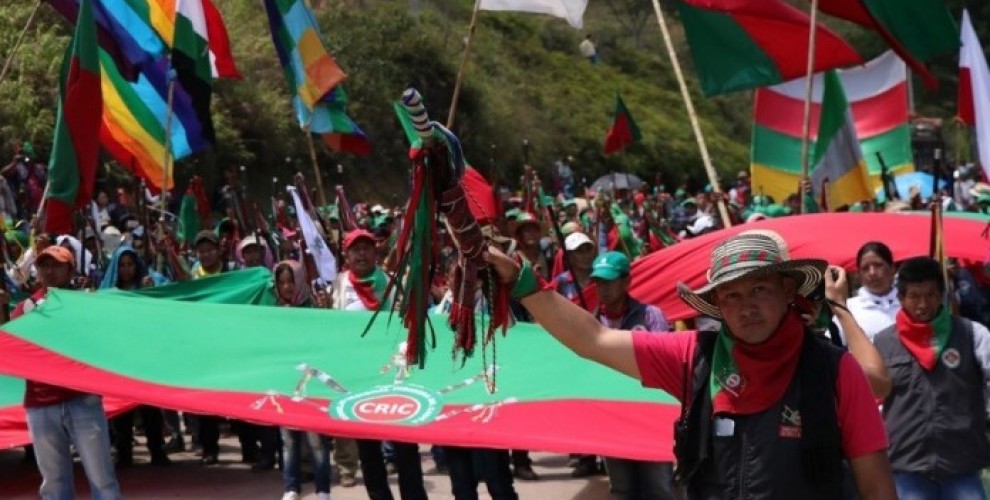Eight dead in Colombia’s social strike
An attack against the Colombian indigenous people killed 8 and wounded 4 as military discovered to have infiltrated the indigenous guards.
An attack against the Colombian indigenous people killed 8 and wounded 4 as military discovered to have infiltrated the indigenous guards.

The indigenous peoples, social organizations, popular processes of the south west of Colombia concentrated in the ancestral territory of Sa'th Tama Kiwe in the Pital, Caldono, Department of Cauca that participate in the Social Minga [strike] for the Defense of Life, Territory, Democracy, Justice and Peace have issued a statement to denounce that on “21 March, a massacre has been carried out leaving eight indigenous guards dead and four seriously injured. The guards were in charge of the logistics to join the mobilization being carried out in the south west of Colombia in the sector of the Delfina.”
The statement continued: “Taking into account that the site of the Delfina was small to take care for the over five thousand Indigenous people who were to arrive, the authorities decided to look for another space in the corregimiento of Juntas, indigenous reservation of Papitas municipality of Dagua.
In this place logistic work was carried out, once the work of adapting the site was completed, the guards were resting inside a house when minutes later, at approximately 3 pm, an explosion occurred. According to the human rights counsellor of the ORIVAC, ‘a person allegedly threw an explosive device, causing the death of eight indigenous guards and seriously injuring three others belonging to the Waunan, Nasa and Embera people.’”
The indigenous people and organisers of the Social strike “urge the National Government to investigate these regrettable events that occurred in the midst of the mobilization and respect the international human rights standards to guarantee the exercise of the fundamental right to peaceful protest as per our Political Constitution and as established by international human rights treaties and conventions and that protect the rights of indigenous peoples.”
The indigenous organisations also “call on the national and international human rights defense organizations, the UN High Commissioner for Human Rights, the Inter-American Commission on Human Rights, the UN Verification Mission, the Mission to Support the Peace Process in Colombia of the OAS, the National Human Rights Commission of the Senate of the Republic, the Office of the Ombudsman and the Office of the Attorney General of the Nation, that, within the framework of their functions and competences accompany the communities and families affected by this massacre that targeted the social Minga of the South West of Colombia.”